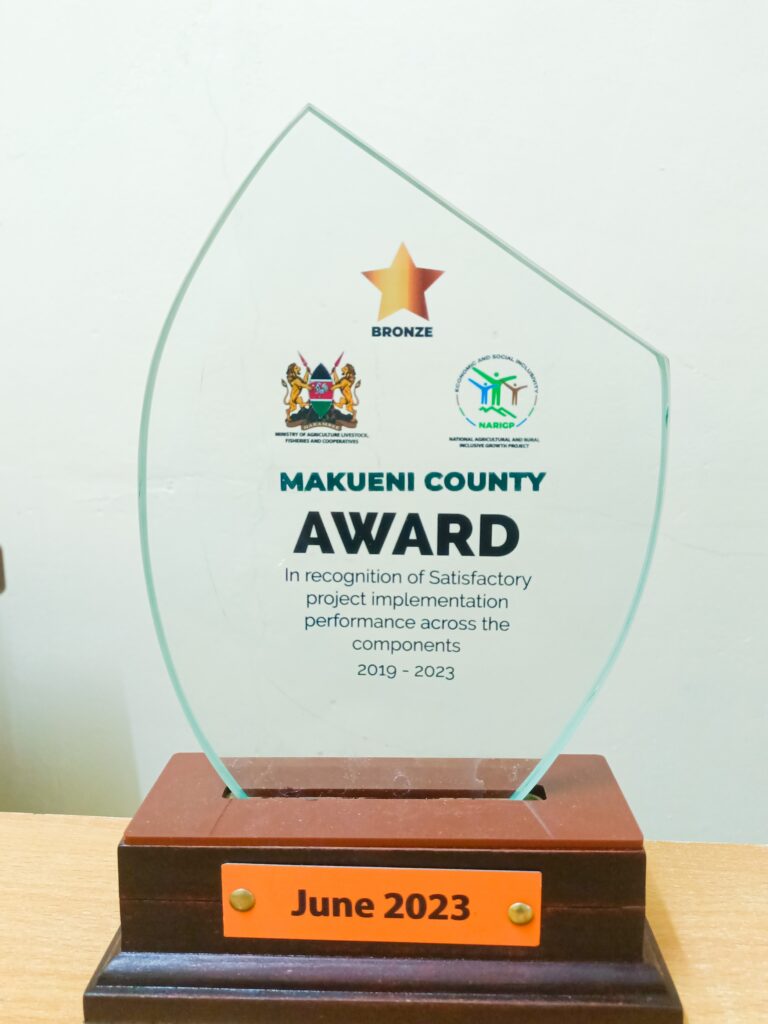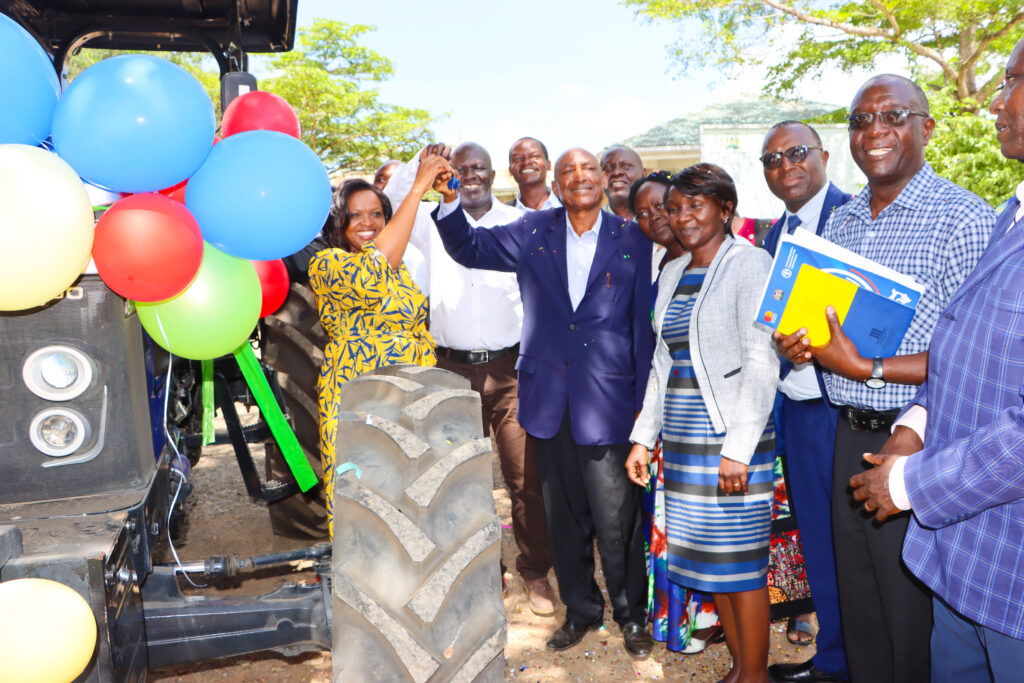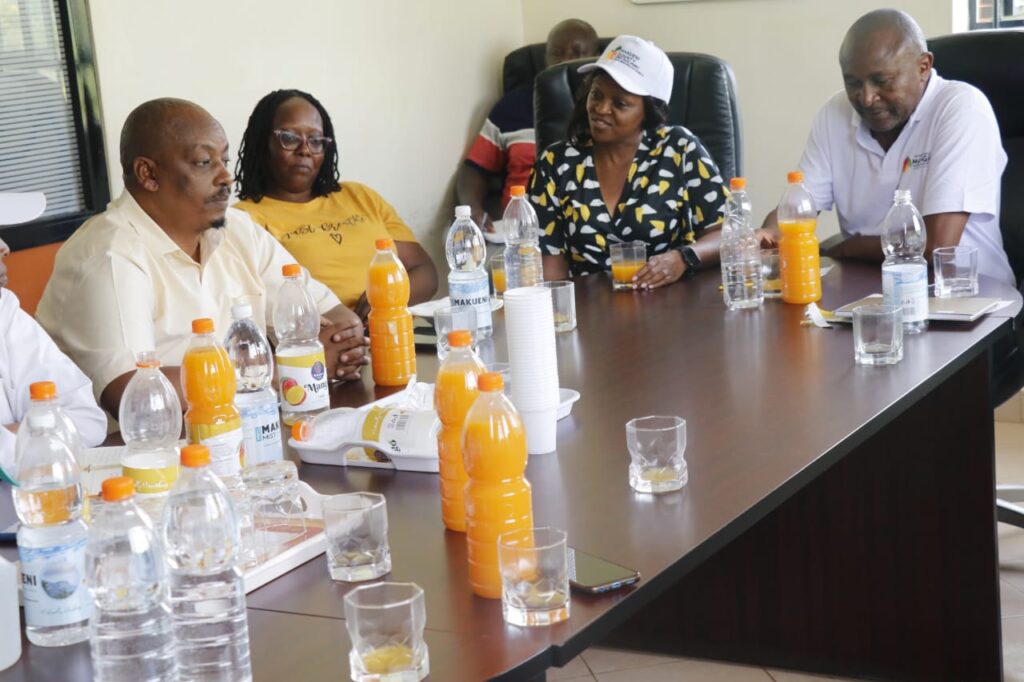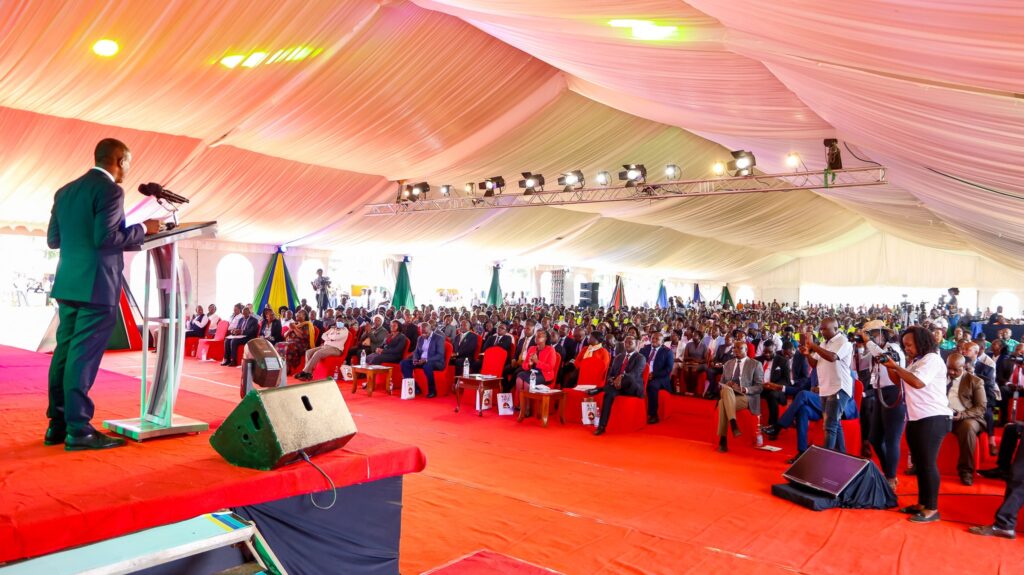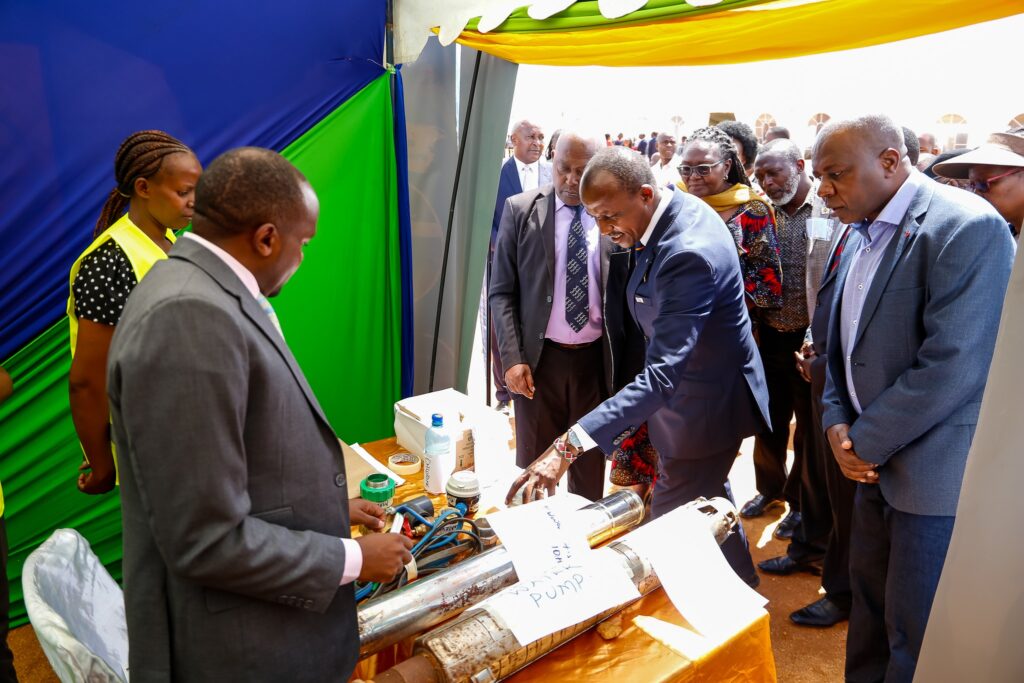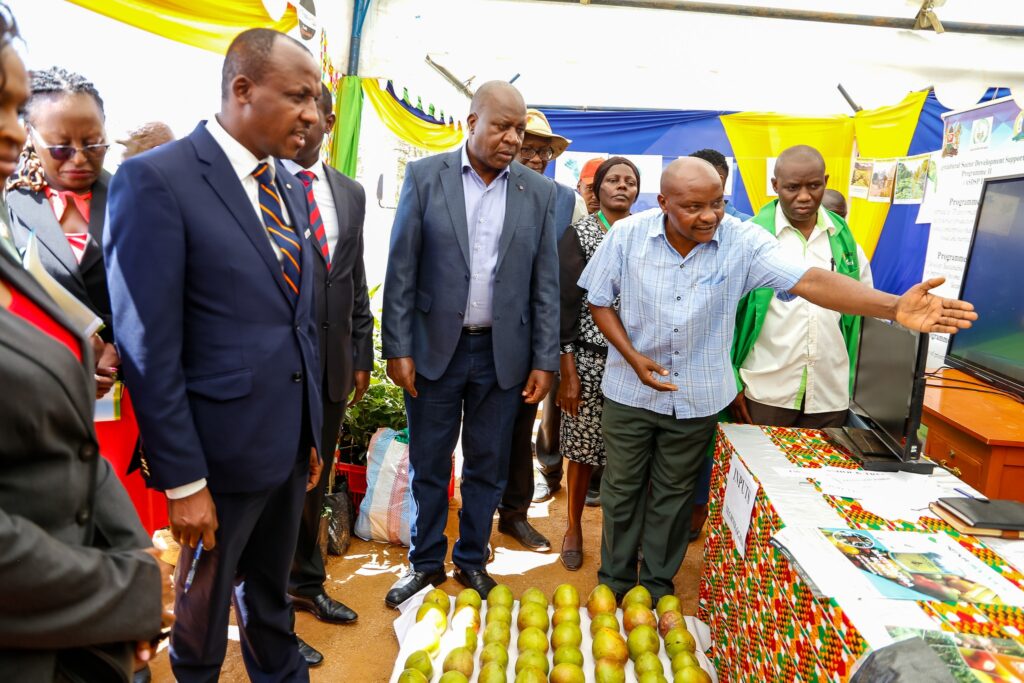Makueni County has been feted by the World Bank for commendable performance in the implementation of the National Agricultural and Rural Inclusive Growth Project (NARIGP).
The County emerged position three for the period between 2019 and 2023 for satisfactorily implementing NARIGP in the 20 selected wards in Makueni.Trans-Nzoia and Nakuru Counties took the first and the second positions respectively.
NARIGP is a 5-year Government of Kenya project that is implemented through the Ministry of Agriculture, Livestock Fisheries and Irrigation with funding support from the World Bank.
The project’s goal is to increase agricultural productivity and profitability of targeted rural communities in selected Counties, and in the event of an Eligible Crisis or Emergency, to provide immediate and effective response.

According to the World Bank, Makueni County had funded more than 600 micro-projects across the four value chains namely mangoes, green grams, poultry and tomatoes.
In addition, the county had trained over 10,000 farmers on agriculture best practices and had adopted new technologies for increasing productivity. These were some of the county performance indicators used by the World Bank to rank the counties
According to the County Project Coordinator Paul Musyimi who received the award on behalf of the County on 7th of June 2023 in Mombasa, “We have supported over 700 groups and 24,000 farmers in Makueni to start micro-projects in tomatoes, poultry, green grams and mangoes.”

Musyimi also revealed that they had spent over Sh 700 Million since the inception of the project in 2017, to empower local farmers with the aim of increasing agricultural productivity and profitability.
Apart from funding and capacity-building farmers, a key premise of the National Agricultural and Rural Inclusive Growth Project (NARIGP) is the importance of linking farmers or Common Interest Groups (CIGs) and Vulnerable and Marginalized Groups (VMGs) organized along priority Value Chains to markets.
 The programme which is supported by Makueni County government is designed to boost their daily processing capacity.
The programme which is supported by Makueni County government is designed to boost their daily processing capacity. The group adds value to horticultural produce such as vegetables and fruits through drying them and is now calling upon local farmers to take up full-time agricultural activities especially indigenous foods and vegetables, as their outfit is a ready market and locally accessible.
The group adds value to horticultural produce such as vegetables and fruits through drying them and is now calling upon local farmers to take up full-time agricultural activities especially indigenous foods and vegetables, as their outfit is a ready market and locally accessible.
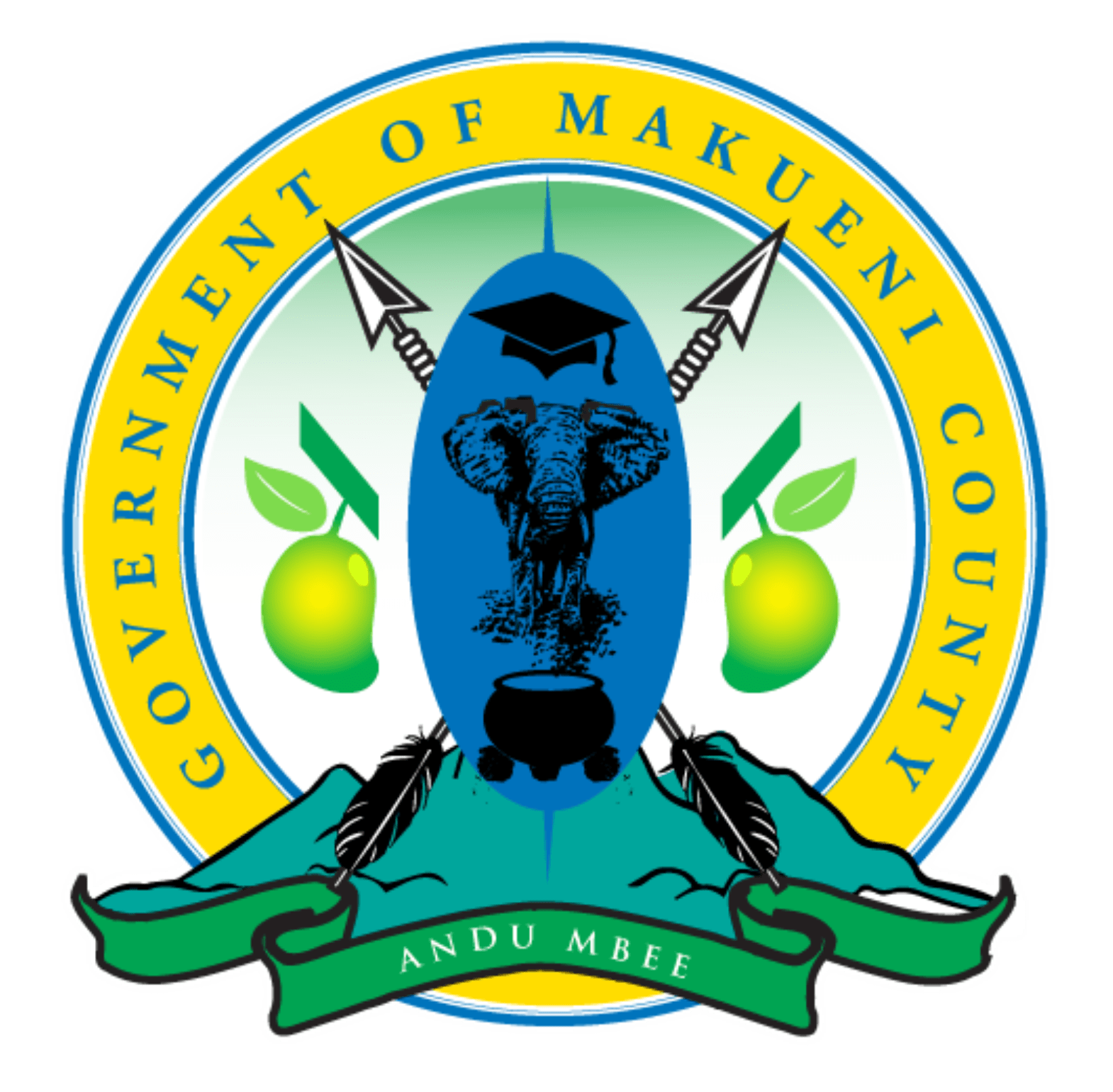
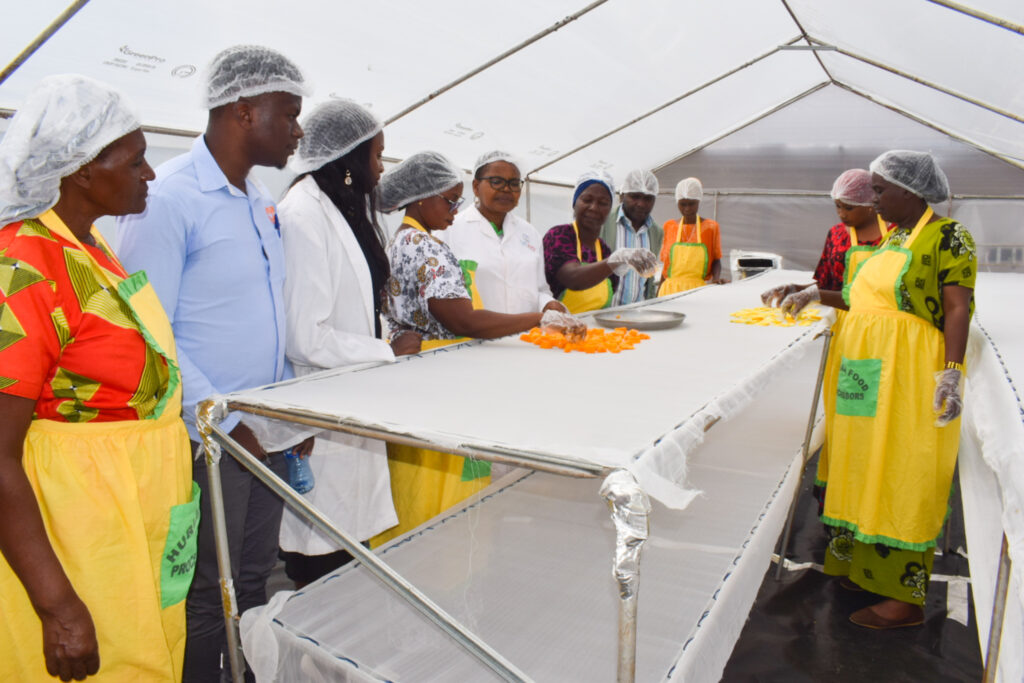
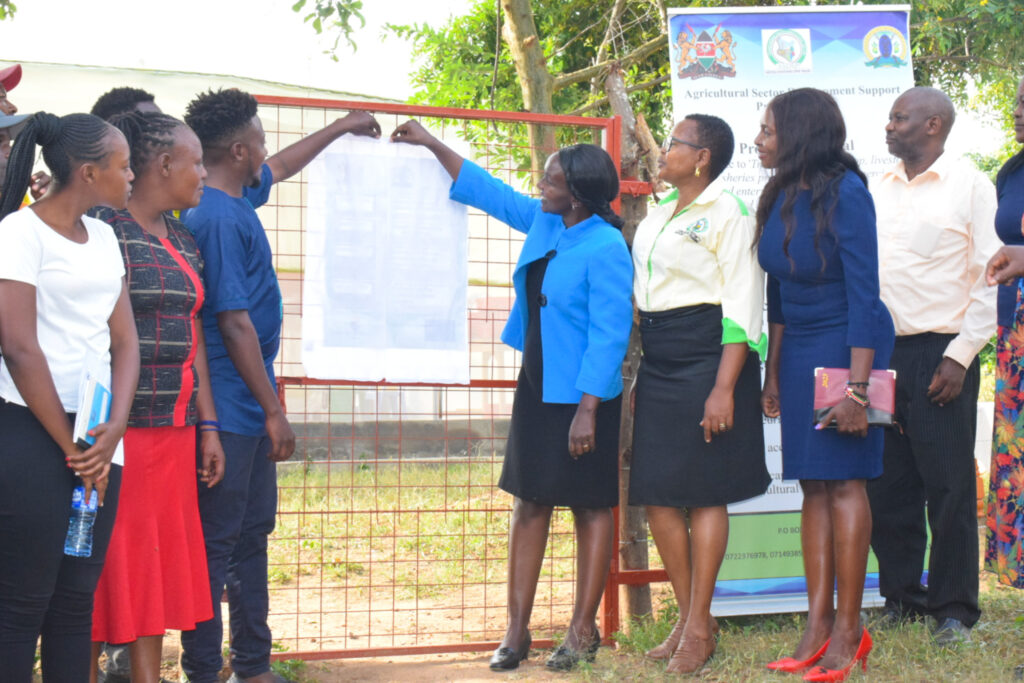
 Edwin Sila of Nguu-Masumba Ward is one of the beneficiaries of such ASDSP II-funded innovations. He now uses Black Soldier Fly Production and Harvesting unit (BSF), to produce protein-rich feed without having to buy expensive indigenous chicken feed.
Edwin Sila of Nguu-Masumba Ward is one of the beneficiaries of such ASDSP II-funded innovations. He now uses Black Soldier Fly Production and Harvesting unit (BSF), to produce protein-rich feed without having to buy expensive indigenous chicken feed. In the mango value chain, the Makueni County Fruit Processors Cooperative Society Limited, from Wote-Nziu Ward has also received mango de-sapping pallets to improve the quality of the produce for export.
In the mango value chain, the Makueni County Fruit Processors Cooperative Society Limited, from Wote-Nziu Ward has also received mango de-sapping pallets to improve the quality of the produce for export.
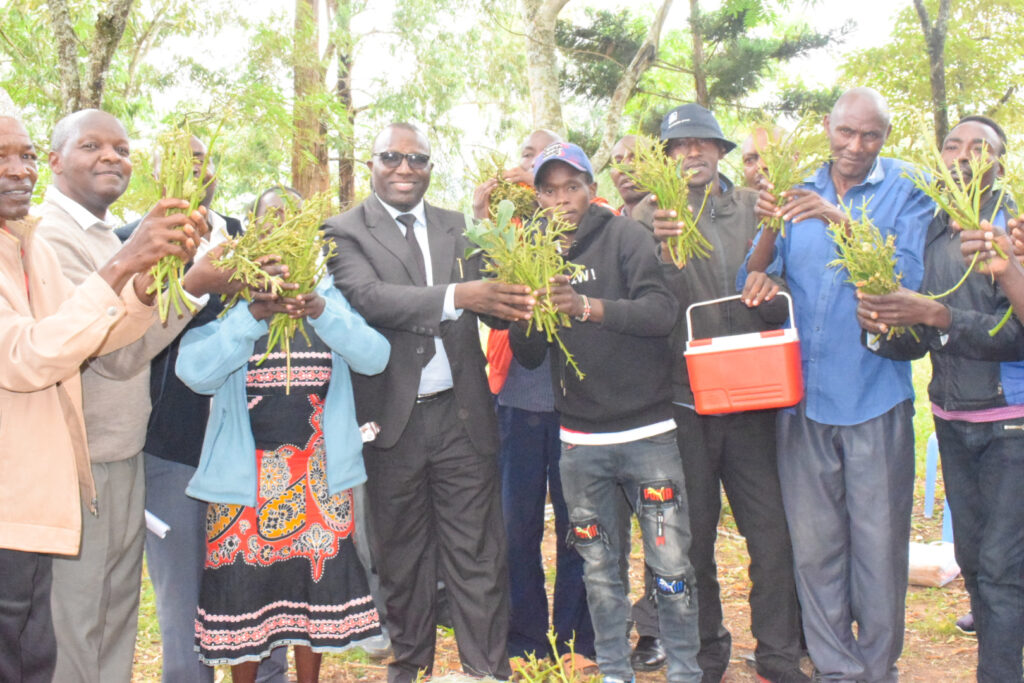

 According to Agriculture Chief Officer Daniel Ndolo, Hass Avocado is the new goldmine for modern farmers and urged farmers to plant more avocadoes.
According to Agriculture Chief Officer Daniel Ndolo, Hass Avocado is the new goldmine for modern farmers and urged farmers to plant more avocadoes.
